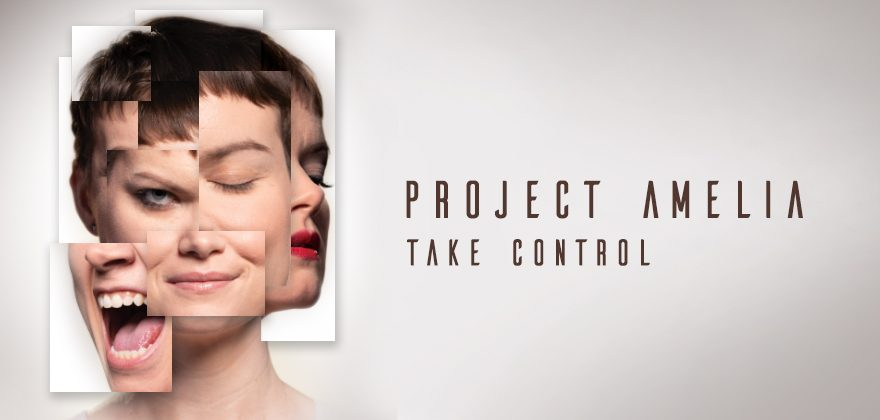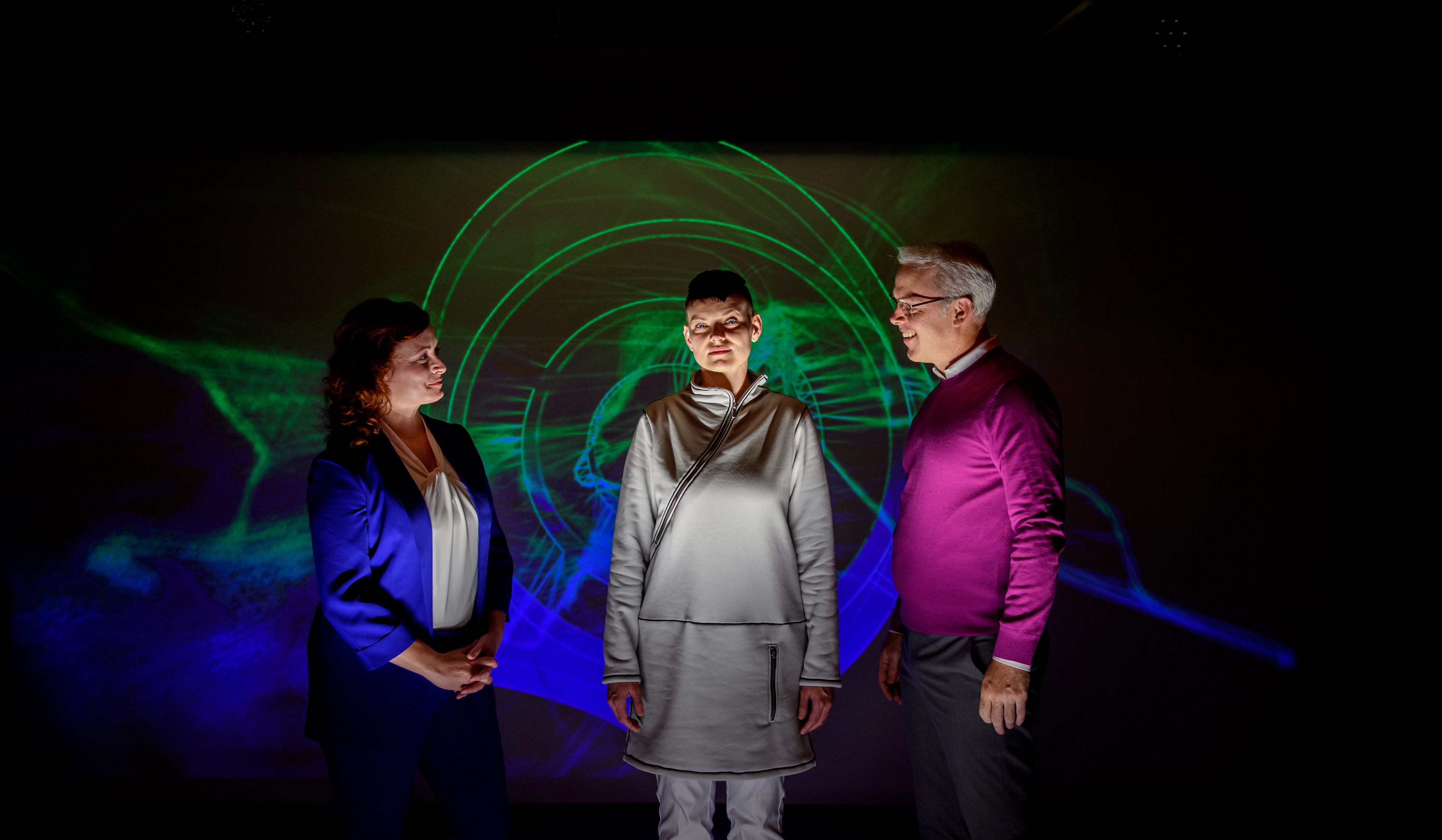 Back to Case Studies
Back to Case Studies
Location
Pittsburgh, PA
Project Amelia is an immersive theater production that invites audiences to learn about issues in data privacy, AI ethics, and corporate governance. Audience members participate in a fictional company’s troubled launch of a superintelligent AI assistant that uses the participants’ real-world data. The show was developed by technologists, researchers, and AI practitioners who wanted to provide an accessible means for people to better understand critical technology issues. The show uses various technologies, including RFID bracelets, custom smartphones, indoor localization, and facial recognition to engage audiences and expand their imagination of what can be done with tech products. Research conducted in partnership with Carnegie Mellon University has shown the immersive theater medium to be an effective method of tech pedagogy.1
 Project Amelia uses immersive theater to create an accessible space for people to personally grapple with the challenges and consequences of tech companies’ most pressing ethical dilemmas.
Project Amelia uses immersive theater to create an accessible space for people to personally grapple with the challenges and consequences of tech companies’ most pressing ethical dilemmas.
Today, many people recognize that there are deeply concerning issues in how technology companies use their personal data, but feel helpless to do anything in response. Even industry experts often find it difficult to comprehend, navigate, and meaningfully discuss key ethical challenges around technology. Furthermore, conversations regarding technological dilemmas that do happen tend to be siloed between industries and issues, limiting their reach and impact. The result of these dynamics has been a deep erosion of trust, which has only continued to worsen with each subsequent crisis and controversy. In order to rebuild trust and find consensus, it is necessary to have spaces where diverse stakeholders can come together and engage in critical conversations about how best to shape future ethical outcomes.
 Project Amelia simulates what it might look like to engage with a powerful near-future tech company whose superintelligent AI assistant does not function as intended.
Project Amelia simulates what it might look like to engage with a powerful near-future tech company whose superintelligent AI assistant does not function as intended.
Project Amelia was initially conceived and piloted in 2016 under the title “Quantified Self,” as part of the writer’s doctoral research on technology ethics and science pedagogy. This research and other studies showed compelling evidence that fictional storytelling could be a more effective method for educating and engaging people in issues around technology ethics compared to other media, such as news articles or terms of service agreements.2 Continued interest and inquiry around the topic led to a full production of Project Amelia in 2019, through a partnership between the technology ethics firm, Probable Models, and the nonprofit Bricolage Production Company, with funding from several foundations and corporate sponsors.
The resulting experience used an immersive theater format to create a safe and accessible space for people to personally grapple with the challenges and consequences of tech companies’ most pressing ethical dilemmas. Through its dynamic plot, multiple endings, and many participatory scenes and mechanisms, Project Amelia simulated what it might look like to engage with a powerful near-future tech company as an employee, board member, activist, journalist, consumer, or other stakeholder. Up to 60 participants were assigned one of several roles, based on data collected from them before the show. The participants would then be equipped with a corresponding smartphone and RFID wristband which they could use to interact with each other and the immersive set. Throughout the show, participants would encounter difficult choices and would often need to work with actors and participants alike to achieve their desired outcomes or endings.
Participants were encouraged to stay after the show for a debriefing session to discuss their questions, experiences, and reflections with the actors, producers, and other participants. For many, this debrief would prove to be the most powerful aspect of their learning experience.
Project Amelia premiered in Fall 2019 for a 12-week sold-out production in Pittsburgh, PA. The show was primarily open to the public. The show was also delivered for some private audiences as a corporate training exercise. Project Amelia reached over 5,000 people, receiving overwhelmingly positive reviews and critical acclaim.
Collaborative research with Carnegie Mellon University studied the effectiveness of immersive theater as a pedagogical method. Among participants who opted to respond to a post-show survey, most reported a significant increase in their understanding of, concern around, and desire to act on data privacy and technology ethics issues.
Project Amelia also worked with several international artist-technologists to co-design a variety of interactive exhibits, disguised as product demos of the fictional company. These exhibits were designed as easily constructed, portable installations to facilitate mini-experiences at other venues, such as conferences, schools, and public settings.
The producers hope to replicate and scale the production, pending recovery from the COVID-19 pandemic. There has been interest in touring the show across cities and setting up permanent residency in certain cities. Any such iterations would certainly facilitate more public discourse and collaborative opportunities.
¹ Maggie Oates, “Privacy in Unusual Contexts: A Case Study of A Theater Company,” 2019, https://www.usenix.org/conference/pepr19/presentation/oates. ↩
² Michael Warren Skirpan, Jacqueline Cameron, and Tom Yeh, “More Than a Show: Using Personalized Immersive Theater to Educate and Engage the Public in Technology Ethics,” in Proceedings of the 2018 CHI ↩